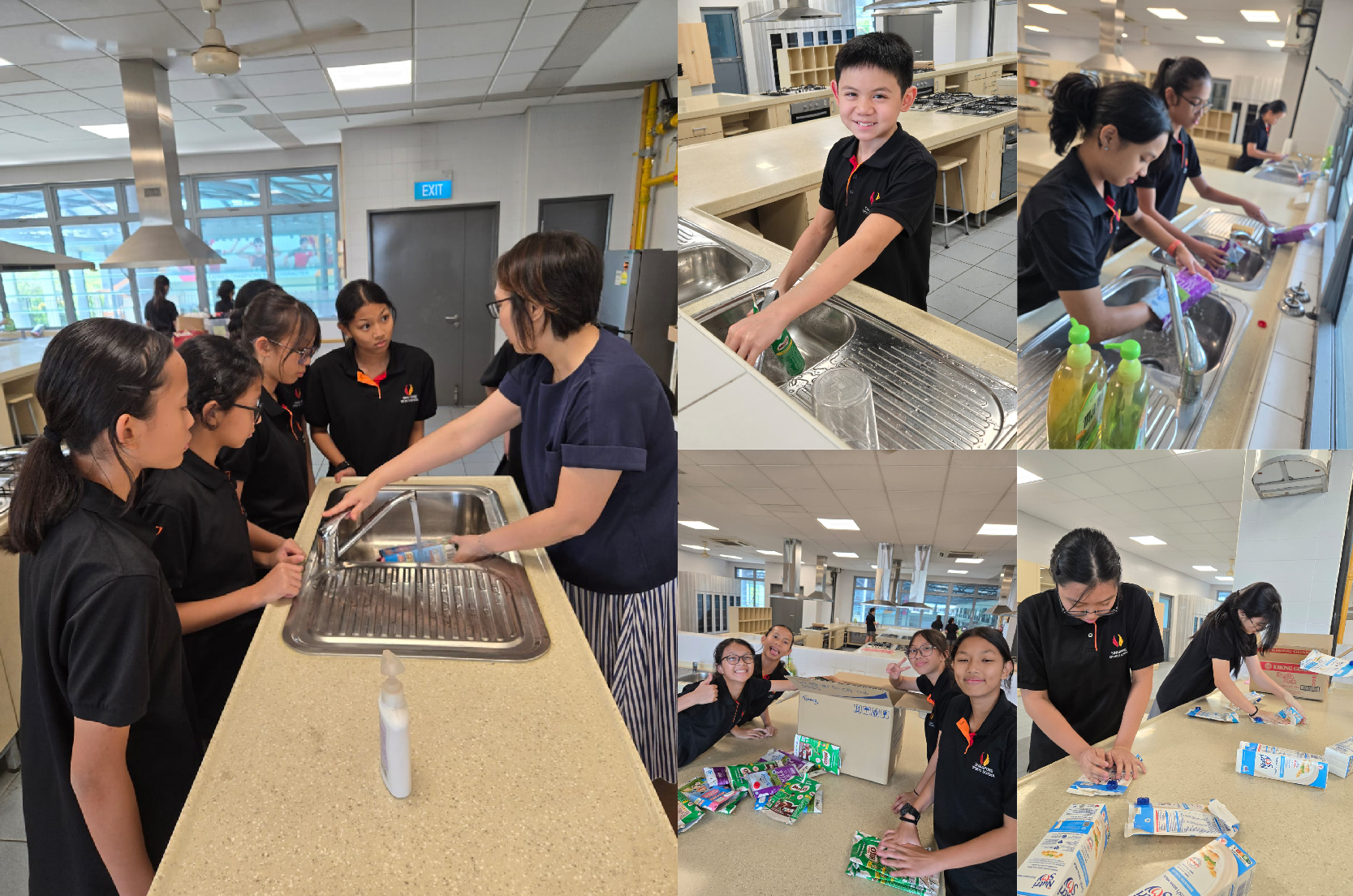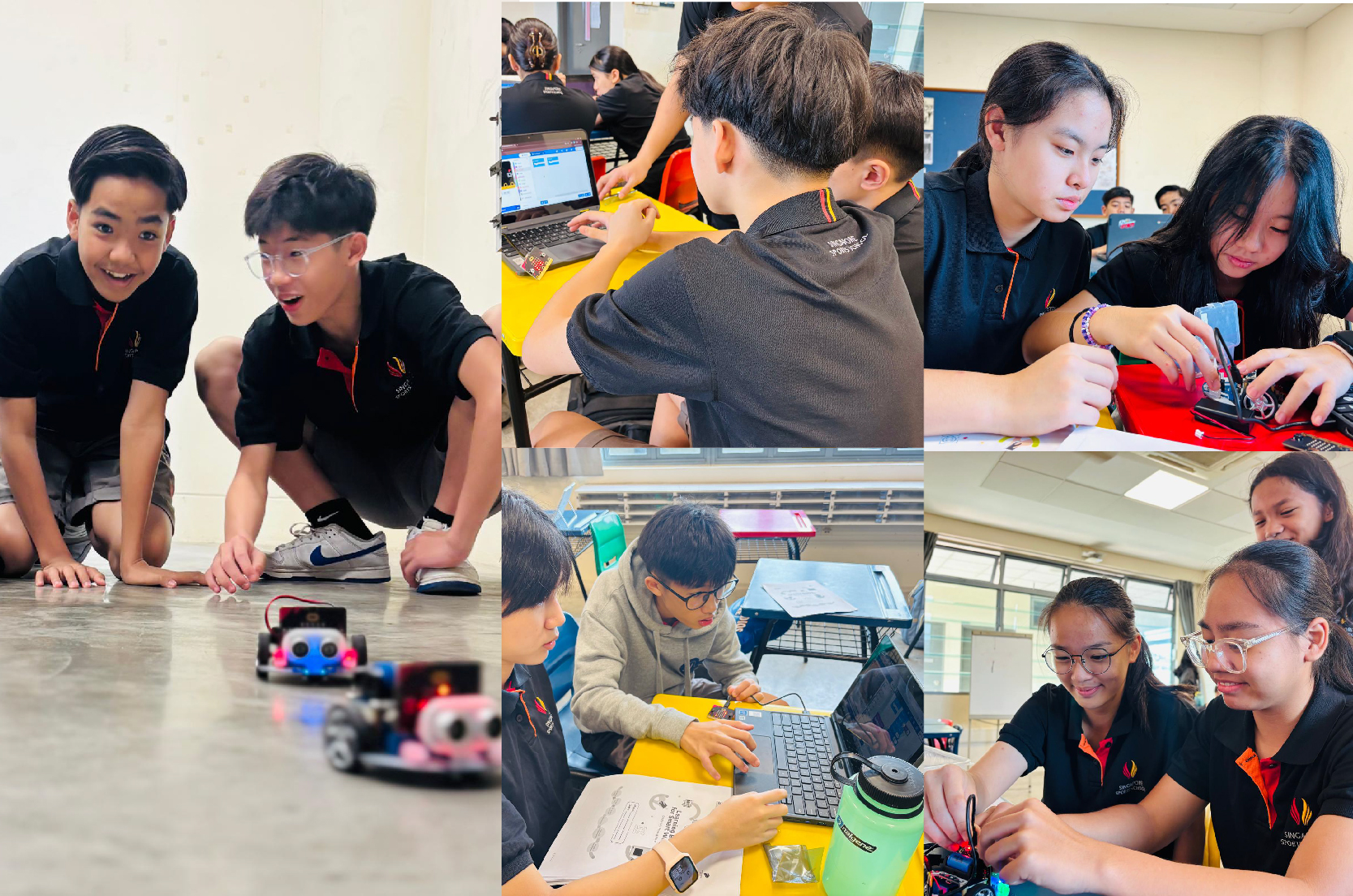- A
- A
- A
Secondary Programmes
Holistic Education Approach
Full Subject-Based Banding
Full Subject-Based Banding (FSBB) is part of MOE’s ongoing efforts to nurture the joy of learning and develop multiple pathways to cater to the different strengths and interests of our students.
Student-athletes will have greater flexibility to study more subjects at different levels that suit their interests, aptitude and learning needs. There will no longer be separate Express, Normal Academic (NA), and Normal Technical (NT) streams, and student-athletes will be in mixed form classes where they can interact with peers of different strengths and interests.
Every child will continue to have access to opportunities, throughout their education journey, to develop their unique talents and fulfil their potential in life.
For more information on Full SBB, you may visit https://www.moe.gov.sg/microsites/psle-fsbb/full-subject-based-banding/secondary-school-experience.html
or watch the videos on
Applied Learning Programme
The programme aims to cultivate
well-rounded individuals who excel not only in sports but also in life. It
focuses on developing student-athletes' abilities
to tackle real-world problems using design thinking as a problem-solving
approach. The curriculum is structured to equip student-athletes with
global awareness, nurture good character and leadership, and promote mental
well-being.
The termly programmes are structured for lower secondary student-athletes (2024 for Secondary 1 only) throughout the academic year. It includes various activities and projects that emphasize sustainability and mental well-being.
Objectives
1. Internalize Design Thinking: Student-athletes learn to apply design thinking to real-world problems, fostering creativity and problem- solving skills.
2. Equip with Global Skills: The programme emphasizes skills that prepare student-athletes for a globalized world, instilling an understanding of different perspectives and cultures.
3. Develop Character and Leadership: A key focus is on building strong character traits and leadership skills, crucial for personal and professional success.
4. Promote Mental Well-being: The curriculum incorporates elements that support student-athletes' mental health and resilience.
Resilience Framework
The programme incorporates the resilience framework that includes values, beliefs, attitudes, and skills to help student-athletes overcome challenges and adversity. This framework comprises three components:
I Am: Developing growth mindset and self-worth.
I Can: Building problem-solving skills and the ability to view issues from different perspectives.
I Have: Creating a caring and supportive environment.
Design Thinking Process
Design Thinking process empowers student-athletes to tackle challenges creatively and systematically, encouraging them to innovate and think critically. It is a process that not only applies to academic projects but also to real-world problems, making it a valuable skill for student-athletes to learn and apply.

The Applied Learning Programme (ALP) at Sports School is designed to help students see the real-world relevance of what they learn in school, fostering motivation and a deeper purpose in their academic journey. Unlike traditional examinable subjects, ALP emphasizes hands-on learning, critical thinking, and creativity, encouraging students to apply their knowledge in authentic settings. Through this immersive experience, students develop essential problem-solving skills that prepare them for future challenges in society and various industries.
The ALP for Secondary 1 students focuses on Food Sustainability, integrating concepts from Geography, Science, Mathematics, Art, and Music. Students will explore ways to reduce food waste and rethink food packaging through a structured Design Thinking process. They will apply sustainable practices, create art from upcycled materials, compose digital music, and analyze real-world data, making their learning experience dynamic and impactful. This cross-disciplinary approach enables students to see the interconnectedness of different subjects while fostering innovation and social responsibility.
Beyond academic knowledge, ALP nurtures 21st Century Competencies, equipping students with skills to thrive in an increasingly digital and interconnected world. By working on collaborative projects, students will develop communication skills, civic responsibility, and creative problem-solving abilities. Through hands-on activities like urban farming, financial literacy exercises, and multimedia projects, they will take ownership of their learning while making meaningful contributions to sustainability efforts. ALP at SSP is not just a programme—it is an opportunity for students to think critically, innovate, and create a better future.

The Secondary 2 Applied Learning Programme focuses on the themes of Emerging Technologies & Sustainability. This programme is designed to nurture student-athletes who are not only digitally competent but also equipped with the mindset to address real-world challenges. By embracing innovation and sustainability through hands-on learning, students are able to foster critical thinking, adaptability, and inventive problem-solving. Incorporating emerging technologies, our student-athletes will develop the technical competencies needed to thrive in a rapidly changing world. This programme also seeks to emphasise the importance of collaboration, empathy, and leadership, ensuring that our student-athletes are well-rounded individuals prepared for the future.
Throughout the programme, our student-athletes will engage in activities such as block programming as they tinker with BBC Micro:Bits, delve in digital prototyping and explore the use of machine learning. They will then be applying their learning and skills to sustainability-focused projects. They will also be acquainted with Design Thinking as a problem-solving framework too. Through this framework, our student-athletes will learn how to empathise, define, ideate, prototype, and test solutions for real-world issues, equipping them with both the technical knowledge and soft skills necessary to make an impact in an increasingly digital and interconnected world.